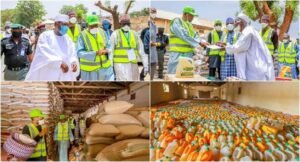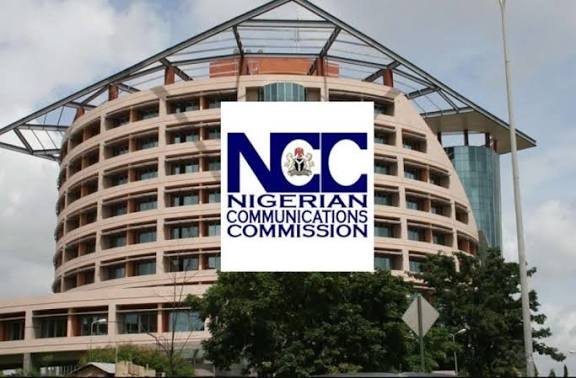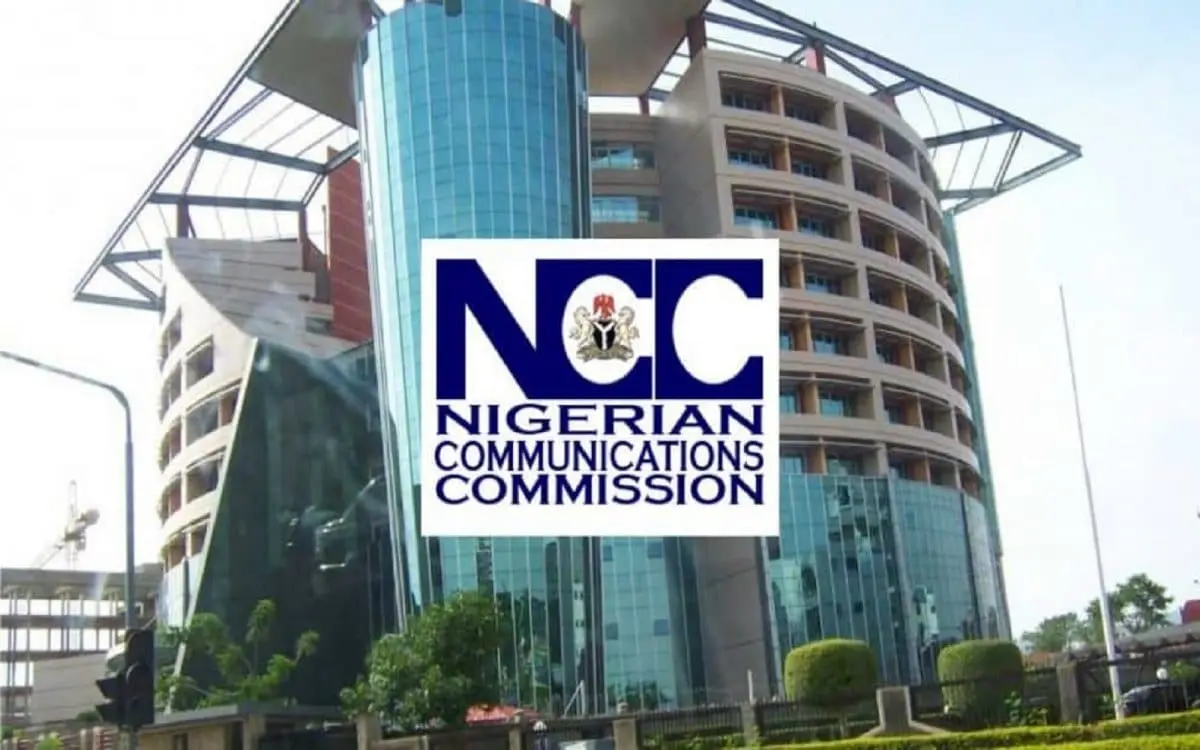‘It is undemocratic’—SERAP sues 36 governors over failure to account for N72bn subsidy palliative
Socio-Economic Rights and Accountability Project (SERAP) has filed a lawsuit against the 36 state governors in the country over “their failure to account for the spending of the N72 billion palliative collected from the Federal Government, including details of the beneficiaries and the reliefs provided with the money.”
The Federal Government recently disbursed N2 billion out of the N5 billion palliative package to each state of the federation and the federal capital territory (FCT), to address the impact of the removal of fuel subsidy.
In the suit number FHC/L/CS/1943/2023 filed last Friday at the Federal High Court in Lagos, SERAP is seeking: “an order of mandamus to direct and compel each of the 36 state governors to account for the spending of the N2 billion palliative collected by the governors from the Federal Government.”
SERAP is seeking: “an order of mandamus to direct and compel each of the 36 state governors to disclose details of the beneficiaries and the reliefs provided to the poorest and most vulnerable Nigerians with the money.”
SERAP is also seeking: “an order of mandamus to direct and compel each of the 36 state governors to instruct the Independent Corrupt Practices and Other Related Offences Commission (ICPC) and the Economic and Financial Crimes Commission (EFCC) to monitor the spending of fuel subsidy palliative collected by them.”
In the suit, SERAP is arguing that: “Government secrecy is fundamentally anti-democratic. Secrecy in the spending of the N72 billion collected by the 36 state governors would create distrust or suspicion of the government. The failure by the governors to account for the public funds is both legally and morally wrong.”
SERAP is also arguing that, “The 36 state governors are constitutionally required to act in the public interest. Secrecy in government is a form of coercion. Government secrecy promotes arbitrariness and covers illegal acts.”
According to SERAP, “The right of access to official information such as the spending of the N72 billion by the governors exists to facilitate the exercise of free expression right, discover the truth, and encourage citizens’ participation in a democracy.”

SERAP is also arguing that, “The right to access information held by public officials and bodies is also essential for collective decision-making in a democratic society. The right to know strengthens the enjoyment of other constitutionally guaranteed human rights and expands the whole system of freedom of expression.”
The suit filed on behalf of SERAP by its lawyers, Kolawole Oluwadare and Mrs Blessing Ogwuche, read in part: “It is in the public interest to direct and compel the 36 state governors to account for the spending of the N72 billion palliative and any subsequent disbursement of public funds to the states.”
“There is no democratic freedom without accountability and the basic postulate of accountability is that the people should have information about the functioning of the government.”
“Compelling and directing the governors to account for the spending of the N72 billion would increase government transparency and enhance an open and democratic society.”
“A functioning democracy rests upon participation and accountability. Citizens cannot fully participate in a democracy unless they are allowed to effectively enjoy the right to know what their government is doing in their name.”
“The right of access to information also lets in light and allows the public to scrutinise the workings of the government and find truth in them. Nigerians have the right to know how their states are spending the fuel subsidy relief funds. It is part of their legally enforceable human rights.”
“Transparency and accountability in the spending of the N72 billion and any subsequent disbursement to the governors would help to reduce the risk of corruption, mismanagement, diversion, or opportunism.”
“The oversight afforded by public access to the details of the spending of the N72 billion palliative and any subsequent disbursement to the governors would serve as an important check on the activities of the states, and help to prevent abuses of the public trust.”
“The constitutional principle of democracy provides a foundation for Nigerians’ right to know details about the spending of the N72 billion fuel subsidy palliative. Citizens’ right to know is crucial for the country’s democratic order.”
“The effective operation of representative democracy depends on the people being able to scrutinise, discuss and contribute to government decision making, including on the fuel subsidy relief funds.”
“The removal of subsidy on petrol continues to negatively and disproportionately affect the poor and socially and economically vulnerable Nigerians in several states, undermining their right to adequate standard of living.”
“The Freedom of Information Act, Section 39 of the Nigerian Constitution 1999 [as amended], article 9 of the African Charter on Human and Peoples’ Rights and article 19 of the International Covenant on Civil and Political Rights guarantee to everyone the right to information, including about how the N72 billion fuel subsidy relief funds are spent.”
“By the combined reading of the provisions of the Nigerian Constitution, the Freedom of Information Act, and the African Charter on Human and Peoples’ Rights, applicable throughout Nigeria, there are transparency obligations imposed on the 36 states to account for the spending of the N72 billion fuel subsidy palliative.”
“The Nigerian Constitution, Freedom of Information Act, and the country’s anti-corruption and human rights obligations rest on the principle that citizens should have access to information regarding their government’s activities.”
“States cannot hide under the excuse that the Freedom of Information Act is not applicable to them to refuse to provide the details being sought, as all the 36 states also have clear legal obligations to provide the information as prescribed by the provisions of the Nigerian Constitution, and the African Charter on Human and Peoples’ Rights (Ratification and. Enforcement) Act.”
No date has been fixed for the hearing of the suit.
IN THE FEDERAL HIGH COURT OF NIGERIA
IN THE LAGOS JUDICIAL DIVISION
HOLDEN AT LAGOS
IN THE MATTER OF AN APPLICATION FOR JUDICIAL REVIEW
SUIT NO: FHC/L/CS/1943/2023
BETWEEN
THE INCORPORATED TRUSTEES OF THE SOCIO-ECONOMIC
RIGHTS AND ACCOUNTABILITY PROJECT [SERAP] APPLICANT
AND
1. GOVERNOR OF ABIA STATE
2. GOVERNOR OF ADAMAWA STATE
3. GOVERNOR OF AKWA IBOM STATE
4. GOVERNOR OF ANAMBRA STATE
5. GOVERNOR OF BAUCHI STATE
6. GOVERNOR OF BAYELSA STATE
7. GOVERNOR OF BENUE STATE
8. GOVERNOR OF BORNO STATE
9. GOVERNOR OF CROSS RIVER STATE
10. GOVERNOR OF DELTA STATE
11. GOVERNOR OF EBONYI STATE
12. GOVERNOR OF EDO STATE
13. GOVERNOR OF EKITI STATE
14. GOVERNOR OF ENUGU STATE RESPONDENTS
15. GOVERNOR OF GOMBE STATE
16. GOVERNOR OF IMO STATE
17. GOVERNOR OF JIGAWA STATE
18. GOVERNOR OF KADUNA STATE
19. GOVERNOR OF KANO STATE
20. GOVERNOR OF KATSINA STATE
21. GOVERNOR OF KEBBI STATE
22. GOVERNOR OF KOGI STATE
Page 2 of 2
23. GOVERNOR OF KWARA STATE
24. GOVERNOR OF LAGOS STATE
25. GOVERNOR OF NASSARAWA STATE
26. GOVERNOR OF NIGER STATE
27. GOVERNOR OF OGUN STATE
28. GOVERNOR OF ONDO STATE
29. GOVERNOR OF OSUN STATE
30. GOVERNOR OF OYO STATE
31. GOVERNOR OF PLATEAU STATE
32. GOVERNOR OF RIVERS STATE
33. GOVERNOR OF SOKOTO STATE
34. GOVERNOR OF TARABA STATE
35. GOVERNOR OF YOBE STATE
36. GOVERNOR OF ZAMFARA STATE
37. PRESIDENT, FEDERAL REPUBLIC OF NIGERIA
MOTION EX-PARTE
BROUGHT PURSUANT TO ORDER 34 RULES 1(1)(A)&(B); 2; 3 (1) (2)(A)(B)(C)
OF THE FEDERAL HIGH COURT (CIVIL PROCEDURE) RULES 2019; SECTION 1,
2, 3(4), 4, 7(1)&(5), 9, 14(2)(B)&(3), 19(2) & 20 OF THE FREEDOM OF
INFORMATION ACT 2011 AND UNDER THE INHERENT JURISDICTION OF THE
HONOURABLE COURT
TAKE NOTICE that this Honourable Court will be moved on the _____day
of_________ 2023 or so soon thereafter as Counsel may be heard on behalf of the
Applicant praying this Honourable Court for the following orders:
1. AN ORDER granting leave to the Applicant to apply for judicial review and
seek an order of mandamus directing and compelling each of the 1 st to 36 th
Respondents to provide and disclose details of spending of the N2 billion
Naira palliative disbursed by the Federal Government to each of the 1 st to 36 th
Respondents, including the names of beneficiaries.
Page 3 of 2
2. AN ORDER granting leave to the Applicant to apply for judicial review and
seek an order of mandamus directing and compelling each of the 1 st to 36 th
Respondents to provide and disclose details of the reliefs provided with the
money.
3. AN ORDER granting leave to the Applicant to apply for judicial review and
seek an order of mandamus directing and compelling each of the 1 st to 36 th
Respondents to disclose details of the palliatives and other socio-economic
reliefs that each of the 1 st to 36 th Respondents has so far provided to the
poorest and most vulnerable Nigerians resident in the states of each of the 1 st
and 36 th Respondents.
4. AN ORDER granting leave to the Applicant to apply for judicial review and to
seek an order of mandamus directing and compelling each of the 1 st to 36 th
Respondents to disclose details of the transparency and accountability
mechanisms that have been put in place to ensure that the N2 billion Naira
palliative and any subsequent public funds disbursed to each of the 1 st to 36 th
Respondents are not misappropriated or diverted into private pockets.
5. AN ORDER granting leave to the Applicant to apply for judicial review and to
seek an order of mandamus directing and compelling each of the 1 st to 36 th
Respondents to promptly instruct Independent Corrupt Practices and Other
Related Offences Commission (ICPC) and Economic and Financial Crimes
Commission (EFCC) to monitor the spending of fuel subsidy palliative by each
of the Respondents.
6. AND for such further order[s] the Honorable Court may deem fit to make in
the circumstance.
Dated this _______ day of ______________ 2023
___________________
Olúwádàre A. Kóláwolé
Adelanke Aremo Mrs.
Blessing Ogwuche Mrs.
Applicant’s Counsel
C/o Eko Akete Chambers
2B, Oyetola Street






